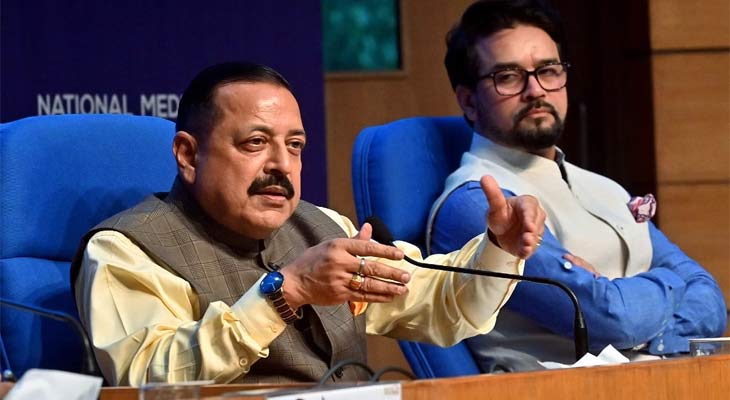Union Cabinet Greenlights National Quantum Mission to Empower Indian Startups
- ByStartupStory | April 20, 2023

The Indian government has approved the National Quantum Mission, aimed at boosting the country’s research and development (R&D) ecosystem, with a total cost of INR 6,003.65 Cr. The Union Cabinet, chaired by Prime Minister Narendra Modi, gave its approval to the mission, which will run from the financial year 2023-24 to 2030-31, spanning eight years.
India has joined Austria, Finland, France, the US, and China to have its own dedicated quantum mission. The Indian Union Cabinet has approved the National Quantum Mission with a total outlay of INR 6,003.65 Cr, aimed at boosting the local startup ecosystem and supporting schemes like Startup India, Make In India, Stand-up India, Skill India, and Digital India. The government believes the mission will provide a significant impetus to various sectors, including communication, health, finance, and energy, and could also have applications in drug design and space exploration.
As part of the National Quantum Mission approved by the Union Cabinet, the Indian government is set to establish four thematic hubs dedicated to quantum computing, communication, sensing and metrology, materials and devices. The hubs will be located in top academic and R&D institutes, and focus on generating new knowledge in their respective domains. The Mission aims to develop intermediate scale quantum computers with 50-1000 physical qubits in the next eight years, using platforms like superconducting and photonic technology.
According to a release, the Mission aims to deliver several outcomes, including secure quantum communications via satellites over 2,000 km, inter-city quantum key distribution over 2,000 km, and multi-node quantum networks with quantum memories. The programme also aims to spur the development of indigenous devices such as magnetometers, atomic clocks, and single photon detectors for navigation, sensing, and communication. Additionally, the Mission will support the design and synthesis of quantum materials, such as novel semiconductor structures and superconductors.

The conventional form of computing is becoming increasingly inefficient in solving complex problems due to suboptimal computing power, leading to the emergence of quantum computing. Quantum computers can effectively process big and complex datasets compared to traditional computers. Unlike binary digits used in traditional computing, quantum computers store information in the form of quantum bits (qubits) that can hold values of ‘0’, ‘1’, or both simultaneously. With the growth of the industry, quantum computers are expected to find applications in fields such as health and communication, and can enable researchers to sequence DNA and predict storms with greater accuracy.
The quantum computing space is still in its early stages in India, with companies like TCS, Infosys, and Tech Mahindra exploring use cases in multiple areas. Meanwhile, startups like BosonQ Psi, Qulabs, and QNu Labs have also emerged. The announcement of the National Quantum Mission comes three years after an INR 8,000 Cr National Mission on Quantum Technologies and Applications was announced. While the exact figures for India are unclear, a report predicts that the global quantum computing market could reach $125 Bn by 2030. NASSCOM estimates that the deployment of quantum technologies could potentially add $280 Bn to $310 Bn in value to the Indian economy by 2030.
Calling all entrepreneurs, investors and business owners! The wait is finally over. The 2nd edition of Startup Story B2B Connect is back with a bang – and this time, we’re taking it up a notch. With more startups, more investors and bigger opportunities than ever before, this is your chance to connect, collaborate and take your business to the next level. Get ready for an unforgettable networking experience that’s set to change the game. Stay tuned for all the exciting updates! Register Now Here.









